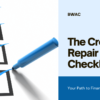Paying your bills on time seems simple enough – you get a bill, you pay it by the due date. But it’s actually a crucial habit that benefits your financial life in multiple ways. Specifically, it can significantly improve your credit score.
Your credit score is essentially a three-digit number that determines your creditworthiness. It gives lenders an idea of how reliably you can pay back borrowed money. The higher your score, the more likely you’ll qualify for loans and credit cards with better terms. So building good credit is important for accessing more affordable financing options.
How Payment History Impacts Your Credit Score
Your payment history, which tracks whether you pay bills on time, is the biggest factor impacting your credit score. It accounts for a whopping 35% of your overall score.
| Factor | Percentage |
|---|---|
| Payment History | 35% |
| Credit Utilization | 30% |
| Length of Credit History | 15% |
| Credit Mix | 10% |
| New Credit | 10% |
As you can see in the table above, payment history carries the most weight. Every time you make an on-time payment towards a loan or credit card, it gets reported to the major credit bureaus (Experian, Equifax, and TransUnion). They keep track of your overall track record – whether the majority of your payments are on time, late, or missed.
Consistently paying your bills on the due date builds a strong payment history. But if you pay late or miss payments altogether, it damages your credit. For example, being 30 days late can knock 70-110 points off your credit score. That’s why staying on top of bills is so critical.
How On-Time Payments Are Reported and Scored
Wondering how credit bureaus collect info and score your payment activity? Here’s a quick rundown:
- Reporting: Lenders report your payment status each month to credit bureaus. On-time payments are noted as “paid as agreed.” Late payments show the number of days past due.
- Scoring: Credit scoring models give more points for a flawless payment history with no lates. A few 30-day lates may not drastically harm your score if the rest of your history shows on-time payments. But repeat and/or longer delinquencies like 60 & 90 days can deduct a lot more points.
- Weighing: Scoring models also consider recency and frequency of lates compared to on-time payments. For example, having late payments several years ago hurts much less than having recent late payments.
So responsibly managing credit and maintaining an excellent payment history over many years is ideal for achieving a high credit score.
Specific Score Benefits of Paying Bills on Time
Beyond the direct impact on your payment history metrics, paying bills on time also leverages other credit score factors in your favor:
1. Lower Credit Utilization
Paying balances off in full every month keeps your credit utilization low. This metric calculates how much of your total credit limits you’re using across cards and loans. Experts recommend keeping credit utilization below 30%. Hitting that benchmark helps demonstrate responsible credit management.
2. No Late Fees or Penalty Rates
Paying late leads to late payment fees, penalty APRs, and even account closure/collections in severe delinquency cases. Avoiding penalties through on-time payments means saving money and preventing credit damage.
3. Produces a Long Credit History
Keeping accounts open and active vs. letting them close due to non-payment contributes to a longer credit history. Scoring models favor longevity since it shows you can responsibly manage credit over many years.
4. Mix of Account Types
As long as you’re paying on time, having open installment loans (mortgage, auto, personal loans) and revolving credit cards produces a mix that diversifies your credit profile.
So in many direct and indirect ways, paying obligations when due benefits your credit standing and your bottom line.
Real-Life Examples of Payment History Impacts
Seeing real-life examples can help demonstrate exactly how payment patterns influence scores over time.
Let’s compare Tom and Lisa, who have identical credit profiles except for their payment history differences:
| Tom | Lisa | |
|---|---|---|
| Credit Card 1 | $5,000 limit, $2,000 balance | $5,000 limit, $2,000 balance |
| Credit Card 2 | $3,000 limit, $0 balance | $3,000 limit, $0 balance |
| Total Credit Card Limits | $8,000 | $8,000 |
| Total Credit Card Balances | $2,000 | $2,000 |
| Credit Utilization | 25% | 25% |
| Payment History | Always on time | 30 and 60-day lates |
| Credit Score | 780 | 620 |
Despite having the same utilization, Tom scored significantly higher than Lisa since he paid bills responsibly while she was frequently late. This exemplifies how strongly payment patterns impact credit scores in the real world.
Here’s another example demonstrating how quickly scores rebound after getting back on track with payments:
| Jan 2019 | July 2019 | Dec 2019 | |
|---|---|---|---|
| Payment History | No lates | 60 days late on credit card | All payments on time |
| Score | 710 | 675 | 720 |
As illustrated in the table above, one late payment caused a 35 point drop, but diligently paying on time for the next few months brought the score back up 45 points.
So don’t get discouraged if you made some late payments in the past. Consistently paying on time moving forward will steadily rebuild your score.
Tips to Never Miss a Payment
By now it should be clear that paying bills on time is pivotal for your finances and credit score. Here are some simple tips to avoid ever missing Due Day again:
- Automate payments for recurring bills so they deduct automatically each billing cycle
- Setup payment reminders through your bank and creditor accounts to receive notices days before the due date
- Manually mark calendars with due dates for any bills not on autopay
- Review statements promptly to catch any billing errors quickly rather than realizing it when payment is overdue
- Use budgeting apps to closely monitor cash flow and ensure sufficient funds to cover upcoming payments
- Have a financial cushion with a little extra money set aside to cover unexpected payment issues if needed
Following these basic payment hygiene tips will help perfect your payment record, improve your credit, and make financial management smoother overall.
The Long Game of Credit Building
While prioritizing on-time payments is essential, it’s also important to note that high credit scores are built over many years. Payment history from 24+ months ago still impacts your score today. Credit scoring models consider the entire arc of your payment behavior rather than just the last few months.
So even if life threw you a curveball awhile back that made payments difficult for a period, don’t worry, just focus on getting all current payments made on time. Stay diligent with good financial habits long-term to see your score consistently strengthen.
Rome wasn’t built in a day, and neither is an exceptional credit profile. But piece by piece, on-time payment by on-time payment, you’ll get there!
In Closing
Your payment track record serves as the foundation of your creditworthiness and overall financial reputation. Paying bills on time demonstrates fiscal responsibility while late and missing payments undermine credibility as a borrower.
Beyond just directly impacting your all-important payment history metrics in credit scoring models, on-time payments also help lower credit utilization, avoid fees/penalties, and build a longer positive history. Meanwhile, late payments create score-damaging knock-on effects.
So do yourself and your wallet a favor by making payments on or before the due date an utmost priority each month. Over time, consistently exercising prudent payment habits will yield higher credit scores, savings on interest rates, and greater financial opportunities.



